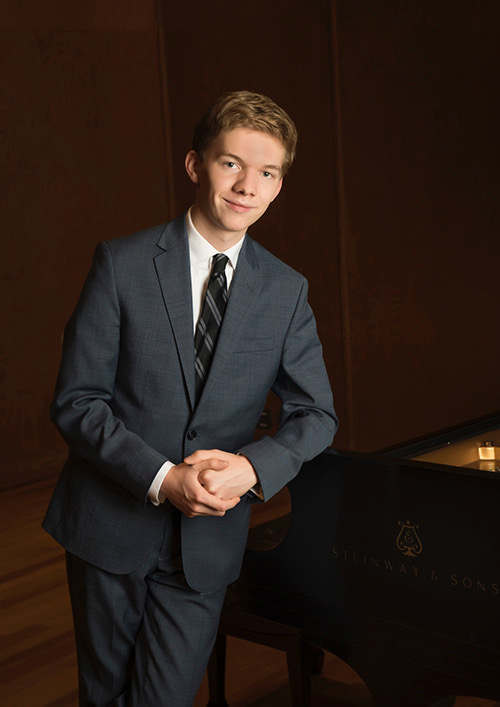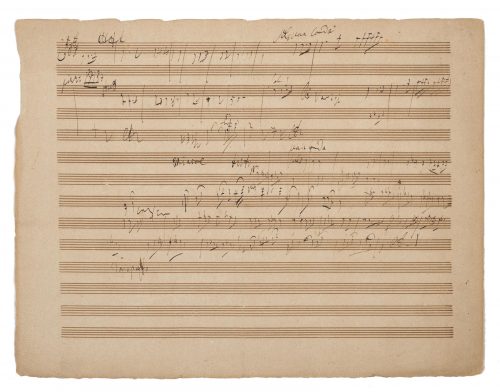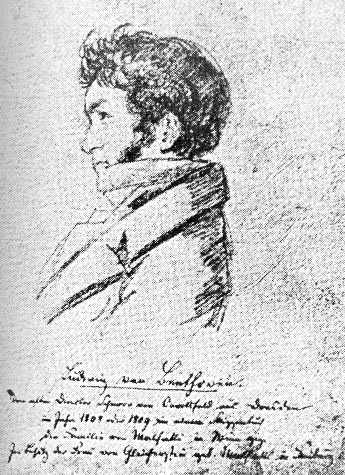Pianist Charles Berofsky ’22E
On Wednesday evening, February 5, the Eastman School Symphony Orchestra (ESSO) presents its first concert of the spring semester in Kodak Hall. Neil Varon, Austin Chanu, and Jakub Rompczyk lead the program, which begins with Fauré’s Pélleas et Mélisande Suite and Samuel Barber’s Second Essay for Orchestra; then Charles Berofsky ‘22E, a native of Ann Arbor, Michigan from the studio of Alan Chow, appears as the soloist in one the great works in the piano repertoire: Beethoven’s Piano Concerto No. 5, the “Emperor.” Eastman student blogger Jacob Buhler interviewed Charles about his work preparing this exciting concerto.
By Jacob Buhler
Have you ever performed with an orchestra before?
I have! I performed with a few orchestras during high school, including a couple community orchestras and a University of Michigan student chamber orchestra—all of them around Ann Arbor where I grew up. It’s always such an exciting experience to play with a large ensemble, and I’m looking forward to playing with ESSO very much.
How do you go about preparing a concerto; is it different from your other solo work preparation?
It’s difficult to say. The learning process isn’t so different initially, but as you get into the final stages of preparation for an audition or a performance I think you have to get into a specific mindset for a concerto. In a way, a concerto performance is easier than a solo recital; typically, there are a fair number of orchestral tutti sections which give the soloist a break, whereas playing a solo work requires constant focus from beginning to end. Yet there are, of course, great challenges with playing a concerto (as there are with chamber music). We pianists have to get out of our own world when we play with others, and as you start feeling more solid with a concerto it’s helpful to imagine your accompanist or the conductor to your left, and your playing changes because of that. You can never completely anticipate what it’ll feel like when you get up onstage and have all these people behind you playing—everything can change in an instant!
What do you like most about playing this specific concerto?
Beethoven is definitely one of my favorite composers and the Fifth Concerto is just so much fun to play. It’s prime “middle period” Beethoven, with everything one comes to expect and love about his music. Of course, the slow movement is something really special, its intimacy and radiance are unmatched in the repertoire. And the very opening of the piece is so unique with its bravado and grandeur; it’s like an explosion of pure joy. But to name a single favorite thing about playing this piece would be impossible for me.
Beethoven’s autograph sketch for part of the first movement of the Emperor Concerto.
How has your experience been preparing with ESSO?
It’s amazing to be able to play with friends; everyone in the orchestra is around my age and I spend time hanging out with many of them! The schedule is very generous this orchestra cycle; we have plenty of rehearsal time together to prepare for the concert and that helps me adjust my playing accordingly. Prof. Varon knows this piece inside and out of course. All in all, it’s a uniquely wonderful experience that I probably will never have in quite the same way again.
What are you most looking forward to with this performance?
I’m looking forward to having my family come out to Rochester to see me play; they’ve been so supportive my whole life and I’m so grateful that they can come. I hope I can do justice to a monumental work in the piano repertoire which comes with centuries of tradition, but I’m also looking forward to add something unique to this performance. I hope to bring something new to the table and communicate the beauty of this piece effectively to the audience.
Eastman School Symphony Orchestra, 7:30 p.m. February 5, Kodak Hall. This concert is free to the public.



